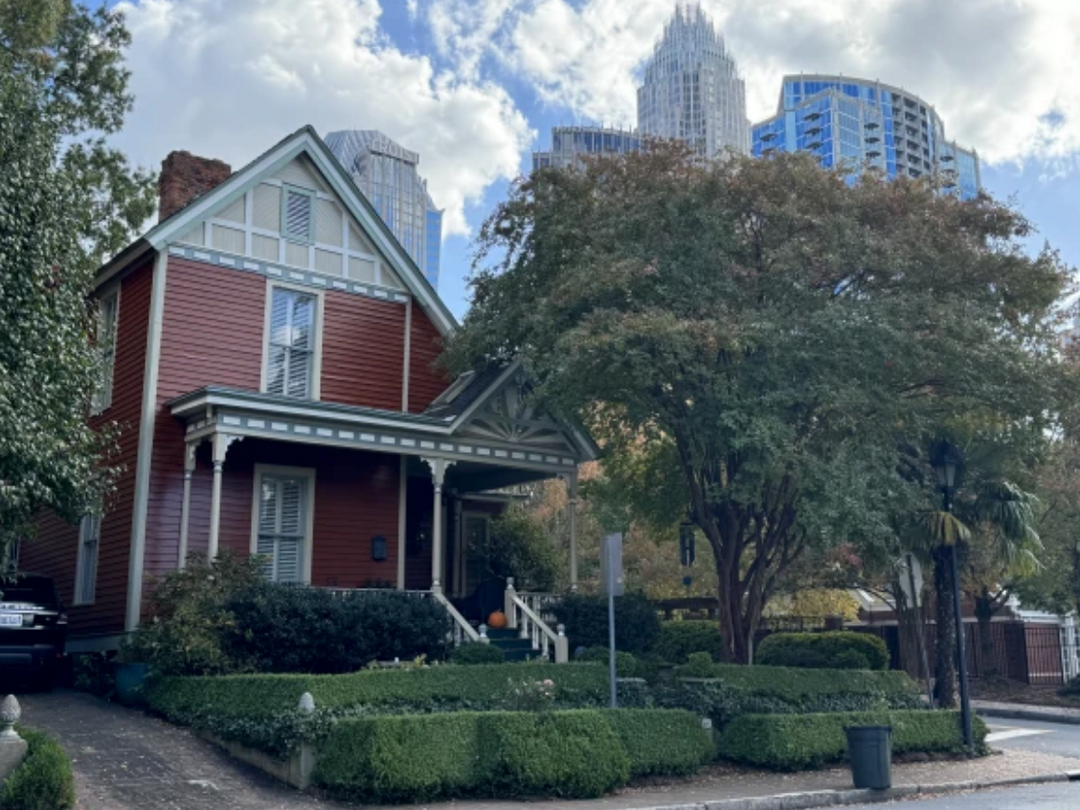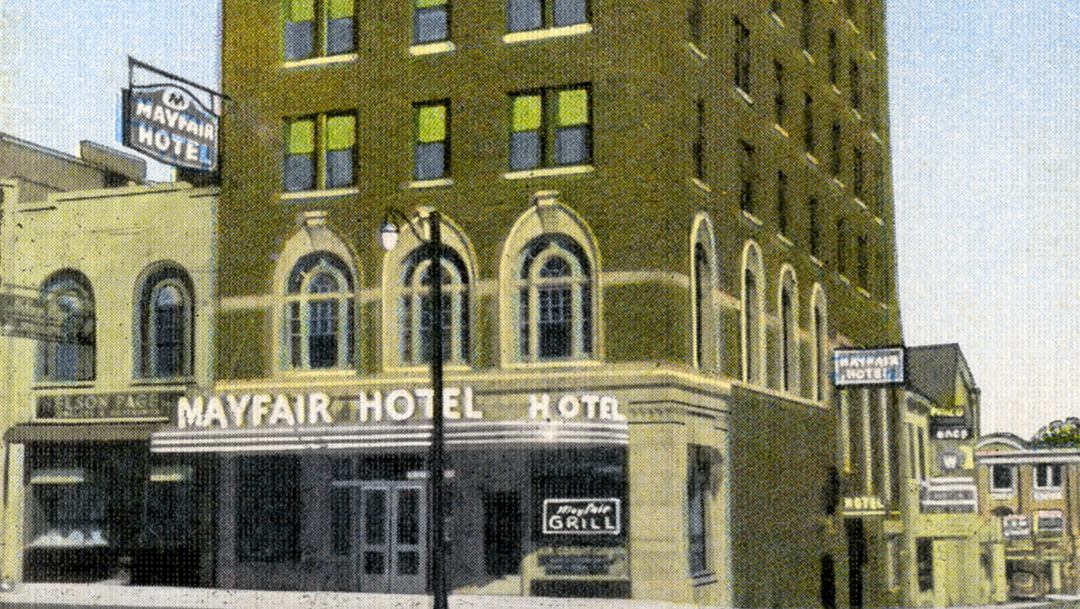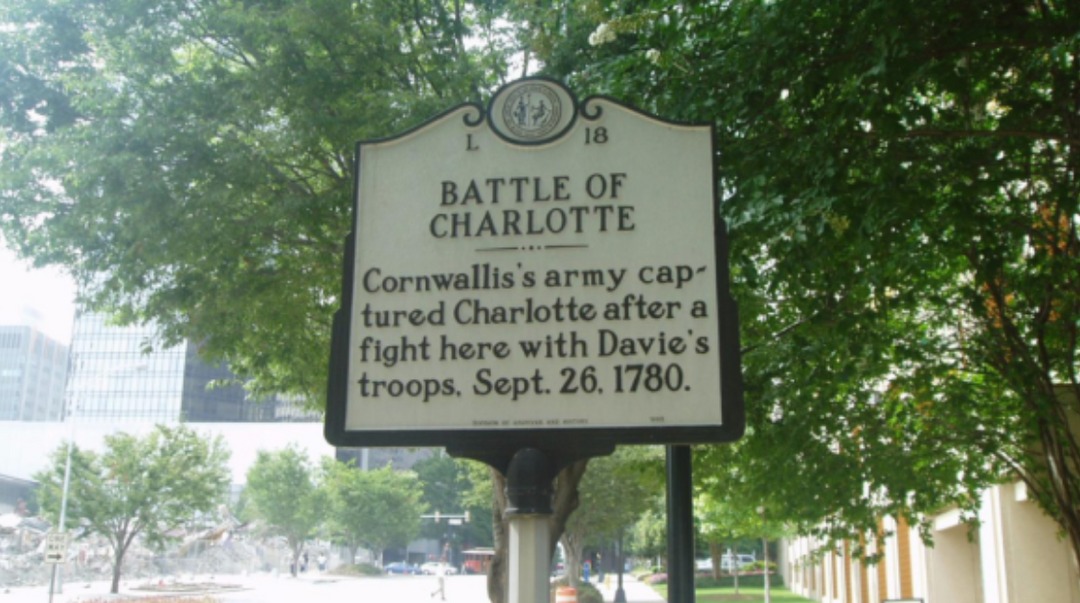Fact Friday 192 - Historic Black Activism at UNC Charlotte
Happy Friday!
At a student government meeting on February 24, 1969, African-American students petitioned the UNC Charlotte Student Government Association (SGA, @UNCC_SGA) to expedite their vote on the recently submitted constitution for the proposed Black Student Union (BSU, @bsuuncc). After a long debate, the SGA ultimately refused to change their procedures and declined to vote on the matter (and would not approve of the BSU constitution until much later in the year in November). That meeting 50 years ago set off a series of events that would profoundly shape UNC Charlotte (@unccharlotte), ultimately making it a better, stronger, and more inclusive university.

Two days later, on February 26, the African-American students put out their “10 Demands of the Black Student Union” in response to the SGA’s refusal to recognize the BSU as a student organization. The demands, which included recognition for the BSU, the hiring of black faculty, the creation of a Black Studies program, and an increase to black student recruitment, were posted all over campus, and the students had planned on giving them directly to Chancellor Colvard. This came days after Governor Bob Scott had issued his campus disorders memorandum to the press, which demanded public university presidents bring in local police if students “threaten public order” on campus. So the African-American students knew they potentially risked arrest.
The students, led by Ben Chavis, Ronald Caldwell, and T.J. Reddy, arrived in the administration building to deliver their demands. Upon reaching the chancellor’s office, the students were surprised to be met by Vice Chancellor and UNC Charlotte founder Bonnie Cone, not Dean Colvard. During a visit to the state capital on Feb. 24, Chancellor Dean Colvard had a medical emergency and had to be hospitalized in Raleigh. The admin had decided not to inform the student body about Colvard’s condition, so Bonnie Cone came to meet the students & explain his absence.
More importantly, Bonnie Cone had refused to follow the governor’s memorandum and instead of calling the police, she welcomed the students into her office. Cone knew all of the students and while she didn’t agree with all of their methods, she believed they deserved to be listened to. In an oral history interview, T.J. Reddy recalled Cone saying, “Okay. I hear you, I read your demands. I don’t think that you are too far up hill with what you’ve done in order to be heard. I’m hear to listen and to help you be more represented here.” At a time of confrontation on college campuses, Bonnie Cone listened to UNC Charlotte’s African-American students, taking their concerns & demands seriously. She set the tone for the administration as they worked with the BSU over the next few years to ultimately meet their most important demands.


10 Demands of the Black Student Union, 1969. Student Affairs Vice Chancellor (Bonnie Cone) records, 1965-1975, UNC Charlotte.
Note: The handwriting is said to be that of Bonnie Cone's and her preliminary thoughts regarding the demands.
The most consequential black student protest took place just a few days later, on March 3, 1969. For one hour that afternoon, a black flag was raised over campus and student protestors gave speeches & peacefully debated angry white students.
The previous Friday, student leaders and administration officials had a productive meeting discussing concrete ways the school could move forward. However, as much as the students trusted Bonnie Cone, they did not trust Vice Chancellor W. Hugh McEniry (and by extension Chancellor Colvard). On Monday morning, they requested McEniry put the school's offers in writing. He attempted to contact UNC System President William Friday (whom the Belk College of Business' Friday Building is named after) to ask permission, but before he could reach Friday, he was contacted by journalists asking if UNC Charlotte had agreed to some of the students’ demands.
Blaming the students for the leak (which they denied), McEniry refused to put anything into writing and he accused them of acting in bad faith. When rumors began spreading around campus following the meeting, he assumed the worst and prepared the administration building for a student takeover that would never come. In an oral history interview, student leader Ronald Caldwell explained the students’ motivations that day, “Security, again, was always around and there was no doubt that had we done anything illegal we knew what would happen. So we were of the mindset that we wanted to be heard.” The students were heard that day, and while they would not received written documentation from the school until mid-March when Chancellor Colvard returned from his medical emergency, the school would work with the students in the months ahead to meet their most important demands.
Students raising the black flag, 1969. UA0066 UNC Charlotte Photographs, 1965-1979, UNC Charlotte.

Ben Chavis at Protest, 1969. UA0066 UNC Charlotte Photographs, 1965-1979, UNC Charlotte.

Protest signs, 1969. UA0066 UNC Charlotte Photographs, 1965-1979, UNC Charlotte.
Until next week!
Chris.
Email me at chris@704shop.com if you have interesting Charlotte facts you’d like to share or just to provide feedback!
Information taken from:
UNC Charlotte Special Collections on Instagram.
“We have to do with the past only as we can make it useful to the present and the future.” – Frederick Douglass




